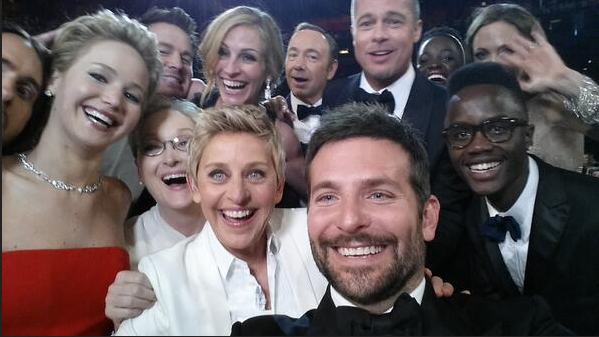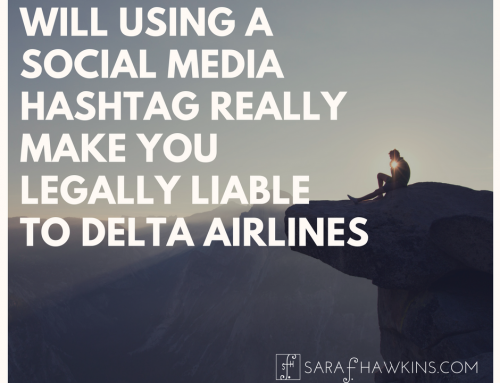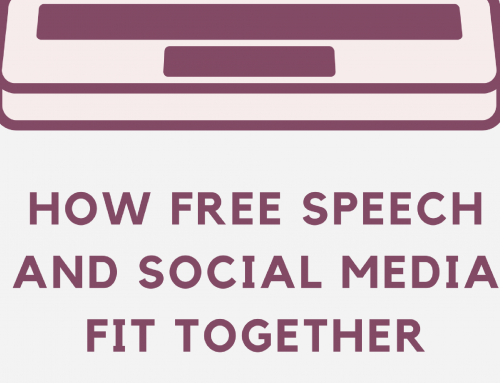By now you’ve likely seen the above photo. The one Oscars host Ellen DeGeneres posted to her Twitter account during the 2014 Oscars telecast. You know, the one taken with the new Samsung phone as part of the big sponsorship package for the broadcast.
You can see that this image now has over 3 million retweets (as of Tuesday 3/4/14), and that number is certain to grow. What’s not to love about the photo? It has major celebrities, it was taken in fun, and the whole world was watching when the photo was taken.
But, and when you’re talking to a lawyer and she says “but” you know she’s about to be a total buzzkill. And, yes, that’s about to happen.
The great Oscars Selfie
Who owns the photo? Well, Ellen posted it on her Twitter account. The phone used was a Samsung that she was likely provided as part of her hosting duties. Samsung has a $20 million sponsorship agreement with The Academy of Motion Picture Arts and Sciences for their sponsorship of the program. In that agreement there were probably several clauses about who would own the photos taken with the devices provided for the broadcast. And while I have not seen any agreement regarding this, I’m pretty sure one did exist.
So, who owns the photo? Surely, Samsung is hoping it’s them. After all, what’s a lucrative sponsorship with an air-tight agreement worth if they can’t own the photos and do with them as they please. And while there would be some issues with regard to publicity rights of all the celebrities, this is where I insert “Hollywood, we have a problem!”
See, Ellen didn’t take the photo Bradley Cooper did. And according to US Copyright laws, it is the one who snaps the shutter who’ll own a photo, barring any specific written agreement otherwise. In that split second when Ellen handed the phone to Bradley she likely wasn’t thinking of the legal implications of that Samsung hand-off. In the moment, Ellen just wanted to get a photo of herself with her friends. But in that moment, someone at Samsung was screaming at the TV “Noooooooooooooo!”
And while I’m using the image, I’m doing so under the Fair Use exception. But unless Bradley Cooper signs over his copyright in the photo, he owns it and it would be up to him to enforce his rights. Perhaps he will sign over the copyright to Samsung, but who knows. This may leave Samsung in a bit of a bind if they’d planned to use the photo. That’s also assuming each person in the photo would sign a release to use their image.
Let this be a lesson though, for both individuals and businesses. If you’re handing your device to someone to take a photo, they, not you, own the copyright. If you ask someone to take a photo of you and send you the photo, they, not you, own the copyright. And if you’re a business and you contract to own the copyright in work created by someone you contract with then make sure they understand what that means.
Edit and Update: Samsung has stated they were pleased with the results of the Oscars show promotion that they will be donating $1.5 million to each of two charities – St. Jude Children’s Research Hospital and the Humane Society of the United States.






Surprise! And a great article. I wonder if Samsung claims ownership? If Ellen knew she goofed? If Bradley Cooper cares? Hope you’ll keep us updated. Since 3 million of us shared it, and any of us are sued over that, we probably have a great class action suit in the making. 😉
Nice article. One question: Independently of Bradley Cooper, Ellen DeGeneres, or Samsung having the copyright/ownership of the picture. Wouldn’t Twitter “own” it too? According to their terms of service:
“By submitting, posting or displaying Content on or through the Services, you grant us a worldwide, non-exclusive, royalty-free license (with the right to sublicense) to use, copy, reproduce, process, adapt, modify, publish, transmit, display and distribute such Content in any and all media or distribution methods (now known or later developed).”
Couldn’t Twitter (or any company that they decide to sublicense the content) use the picture without legal consequences?
Thanks for stopping by. As to your question, the word Content is capitalized so it is a word that has a specific definition within that agreement. In general parlance, if it were lower case, it would be much more likely that it had a general definition and it would appear that Twitter received a license to do whatever it wanted with anything uploaded/posted to Twitter. However, with a simple capitalization you have to look to the agreement to see what that word means within the context of that agreement.
(emphasis added is mine)
For Twitter, Content means: any information, text, graphics, photos or other materials uploaded, downloaded or appearing on the Services (collectively referred to as “Content”)
Notice that Services is also capitalized. These Terms of Service (“Terms”) govern your access to and use of the services, including our various websites, SMS, APIs, email notifications, applications, buttons, and widgets, (the “Services” or “Twitter”),
Together these mean that Twitter received a license to serve up the tweets, pictures, links, etc. in a way that make them public through their system. It gets sticky because we it does seem that it’s conned users in to giving up some rights so Twitter can go sell our stuff. But, what it really does is, with just a few capitalizations and the word Services used in the definition of Content they’re only taking the rights they need to be able to broadcast a tweet in some matter that keeps it without their functionality, essentially.
That was my question also! The law amazes me.
Dear “colleague”, you’ll find here:
http://leplus.nouvelobs.com/contribution/1154215-ellen-degeneres-et-son-selfie-aux-oscars-mais-a-qui-appartient-donc-cette-photo.html
my contribution, under french law, on this subject
thank you for yours:
All the Best,
Nicolas Rebbot
Thanks, Nicolas! While I don’t read French very well I got the gist of your article. Thanks for sharing it with me. ~ Sara
Interesting point and info Sara, I had not even considered that I wouldn’t own a pic taken by somebody else on my camera.
Is this the same with Videos ?
And if making a video for a small business, for example, would I then own all the rights/
Great subject, thank you.
Mitch,
It’s definitely the same for videos. If you create the video w/o an agreement that you’re signing over any rights or by entering into a Work For Hire agreement most likely you’re the one with the copyright.
You’re such a rock star Sara. I looooove that you wrote this post. I remember seeing that moment on the Oscars and going, “hmm” with my nerd brain. Funny how I can step outside of the artist hat long enough to have my lawyer moment. LOL Keep ’em coming darling! Your legal blogs posts are the only ones I truly care to read. 😉
This is a great article. Who knew it could be so complicated? Or that, a capitalization or comma can mean the difference between night and day. Very important information about asking others to take photos for us. It seems so much more common now and we don’t think about it, but should. Thanks, Sara, for sharing your wealth of information.
I have never bothered about the question of whose ownership the most twitter photo is but now that you have asked, it is more of an eye opener for me. I really appreciate and love what you do on this blog. I will surely visit more often.
[…] it doesn’t much matter for the average social media user. As an Amercian legal blogger points out in her post, commentators can use the image under the US’ fair use […]
[…] 12, 2014April 4, 2014 / bsocialized Take a look at “Who Owns The Oscars Photo That Broke Twitter” by Sara Hawkins. You may be surprised! [Note: The link will open in a new […]
[…] Who Owns The Oscars Photo That Broke Twitter […]